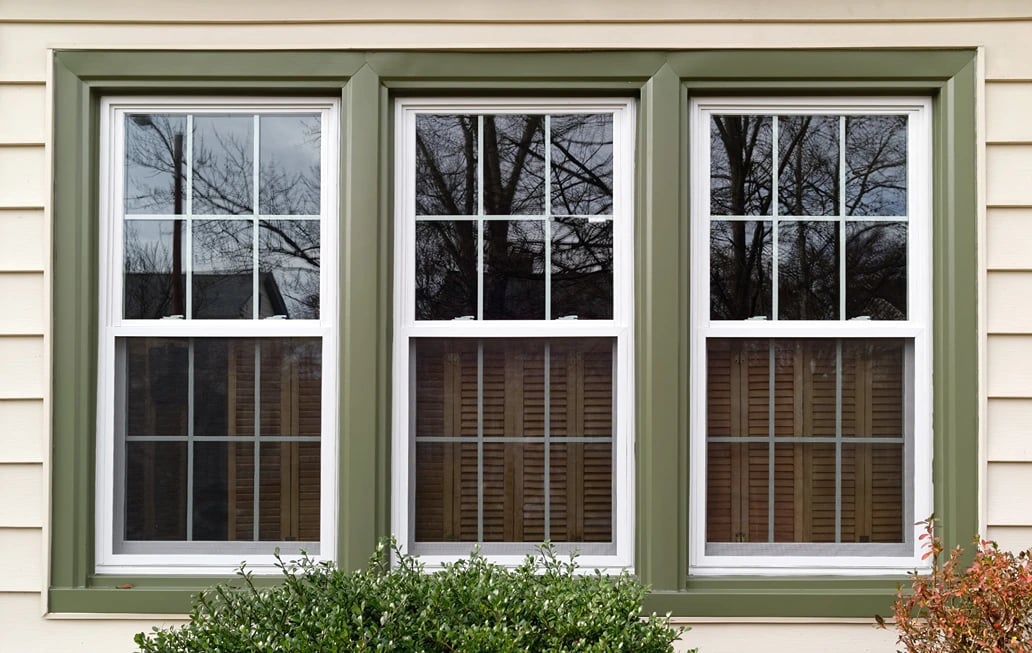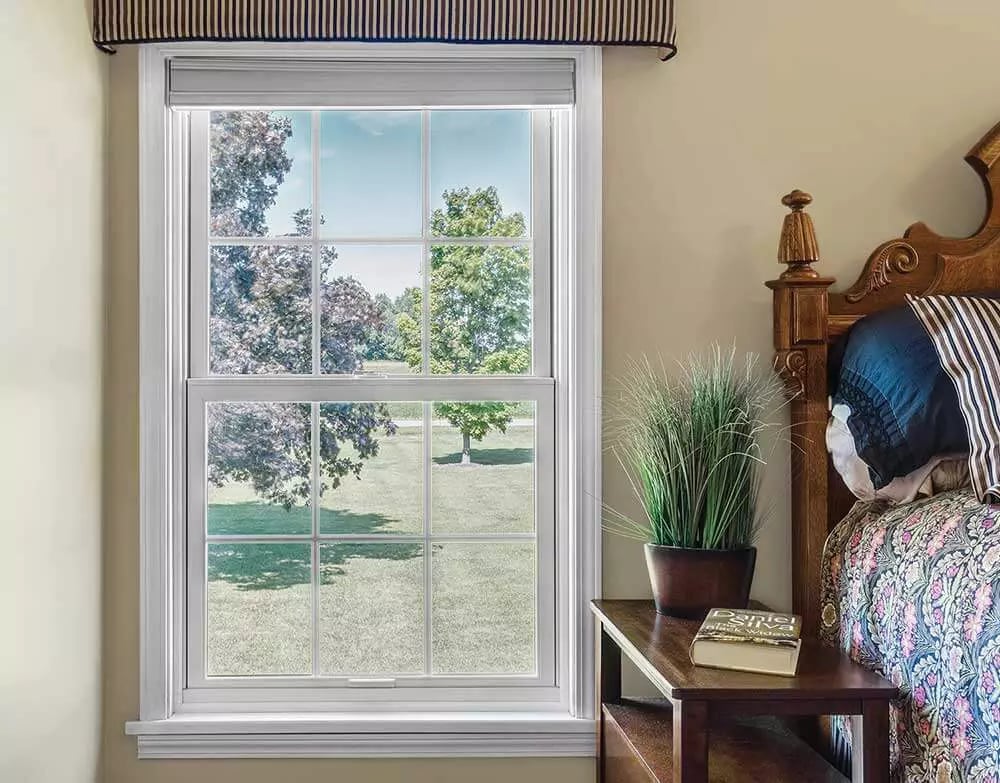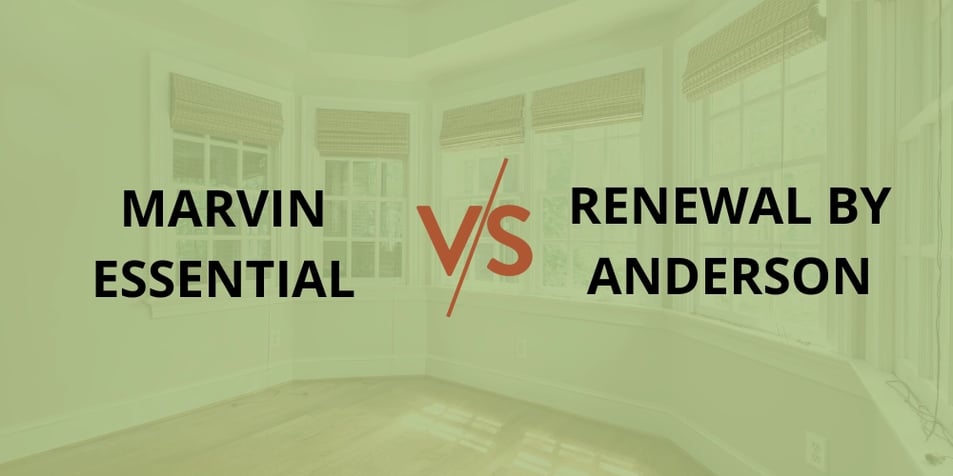Vinyl vs Fiberglass Windows: Cost, Durability, & More
Are you trying to decide between fiberglass and vinyl windows?
Wondering whether to trust the company that swears by their window?
Then you’ve come to the right place.
At Southwest Exteriors we’ve been selling both vinyl and fiberglass windows for decades, and in this article, we’ll give an unbiased and comprehensive comparison of the two. By the end, you’ll have a much better grasp of which type of window is best for your specific needs.
Vinyl vs Fiberglass Windows: Complete Comparison Table
If you're in a rush, here’s the TL;DR (too long; didn’t read) version in the table below.
Now, after a quick glance at this table, you might think that fiberglass is the obvious choice, since it outperforms vinyl on almost every metric. But you would be wrong. Vinyl can absolutely be a valid choice, depending on your specific needs and budget. Check out the last section of this article for more info on when vinyl is a better selection.
Fiberglass | Vinyl | |
Aesthetics | More beautiful | Less beautiful |
Cost | $600–$1,500 (window only) | $200–$950 (window only) |
Durability | More durable | Less durable |
Energy efficiency | Slightly more energy-efficient | Slightly less energy-efficient |
Eco-friendliness | More eco-friendly | Less eco-friendly |
Installation | Professional installation | Can be DIY |
Lifespan | 50 years | 30 years |
Maintenance | Low-maintenance | Low-maintenance |
Finish & Color Options | More options | Fewer options |
Profile | Thinner Profile (more glass) | Thicker profile (less glass) |
What Are Vinyl Windows?

Vinyl windows are made from polyvinyl chloride (PVC), a synthetic plastic polymer that is used in everything from plumbing pipes to medical devices. This material is beloved in the window industry because it’s both durable and inexpensive.
Advantages of Vinyl Windows
The benefits of vinyl windows include cost-effectiveness, minimal maintenance requirements, and easy installation.
- Cost-Effective: One of the biggest advantages of vinyl windows is their affordability. They're great if you want to replace or upgrade your windows without the hefty price tag, running between $200 and $1,000(without professional installation).
- Low Maintenance: Vinyl windows require minimal maintenance. They do not need to be painted or stained, and they resist weathering better than many other materials like wood. A simple cleaning with soap and water is typically all that's needed to keep them looking new.
- DIY: Vinyl windows are easier to install than fiberglass, as the material is more flexible and easier to fit into an opening. So if you’re handy, vinyl windows can be a DIY project. That said, we still recommend working with a professional to reduce the risk of improper installation and to take advantage of workmanship warranties.
Disadvantages of Vinyl Windows
The downsides of vinyl windows center around their inferior durability and energy efficiency compared to fiberglass.
- Bulkier Frames & Less Glass: The flexibility of vinyl, which makes it easier to install, can be a drawback when it comes to structural integrity. To compensate for this, vinyl windows may have bulkier frames and less glass.
- Limited Customization: If you're looking for a specific color or finish, vinyl offers fewer options. In particular, vinyl cannot be made to look like wood, unlike fiberglass.
- More Prone to Seal Failure: Vinyl can expand and contract significantly with temperature changes, which may lead to seal failure and difficulty moving the sash over time.
- Less Energy-Efficient: Thanks to the properties of PVC and advanced manufacturing techniques, vinyl itself is very energy-efficient, but it’s tendency to expand and contract a lot reduces this advantage compared to fiberglass.
What Are Fiberglass Windows?

Photo Credit: Infinity from Marvin
Fiberglass windows are made from glass fibers embedded in a resin matrix. This construction technique is similar to that used in the aerospace industry, which attests to its strength and durability.
Advantages of Fiberglass Windows
The benefits of fiberglass windows center around strength, energy efficiency, and aesthetic flexibility.
- More Glass, Sleeker Frames: Fiberglass offers superior strength and durability compared to vinyl. This allows for thinner frames and larger glass areas, which means more natural light and a sleeker aesthetic for your home.
- Energy Efficiency: Fiberglass expands and contracts very little with temperature changes, keeping a tight seal and better insulation over time. This can reduce heating and cooling costs and keep your home comfortable during summer and winter.
- Aesthetic Flexibility: Fiberglass can be painted or stained to match any home decor, offering greater aesthetic flexibility than vinyl. This makes it a preferred choice for custom home builds or any project where a specific look is important. Some companies, like Marvin, even offer fiberglass options that look just like real wood, without the disadvantages like rotting or the need for periodic re-staining.
- Less Seal Failure: Fiberglass doesn’t expand and contract much, unlike vinyl, which means it suffers less wear and tear as well as seal failure. This is one of the reasons fiberglass last so much longer than vinyl (50 years as opposed to 30).
- More Environmentally-Friendly: Fiberglass is usually more environmentally friendly than vinyl.
- For one, it’s often made from recycled glass and uses fewer chemicals during production. (An exception to this is Renewal By Anderson’s Fibrex, which is made of 40% wood fiber reclaimed from their manufacturing process.)
- Two, it lasts substantially longer than vinyl windows (20 years longer, on average).
- And lastly, it is usually a better insulator than vinyl, meaning you’ll use less energy for heating and cooling.
Disadvantages of Fiberglass Windows
The downsides of fiberglass windows mostly come down to cost and installation difficulty.
- Cost: Fiberglass windows generally come with a higher price tag than vinyl ($600 -$1,500 compared to $200 - $1,000). Fiberglass is not a budget window.
- More Complex Installation: The rigidity of fiberglass can complicate the installation process, meaning you’ll need specialized labor, which can add further to your costs.
Vinyl vs Fiberglass Windows: Which is Right for You?
To determine which material is right for you, it’s important to consider three factors: your climate, your desired look, and how long you plan to stay in your home.
What Kind of Climate Do You Live In?
If you live in an area with significant temperature swings, the superior thermal stability of fiberglass might be more beneficial. In more temperate climates, vinyl's cost-effectiveness and lower upfront investment might be more appealing.
How Important Are Aesthetic Options?
If you prioritize customization and want your windows to match a specific architectural style, fiberglass will give you more options and will have a higher-end appearance. Vinyl, on the other hand, is a good option if you prefer a simpler appearance.
How Long Will You Stay In Your Home?
If your house is your forever home, the fiberglass’s durability and longevity may be just what you need. Conversely, if you're selling your home within the next 5-10 years, vinyl is a better investment. Yes, fiberglass will increase your home value, but usually not enough to make up for it’s higher cost.
Marvin Essential vs Renewal By Andersen Fibrex

If you're weighing vinyl vs fiberglass, you should consider Marvin Essential (a fiberglass window), and Renewal By Andersen (a composite wood-vinyl window). These are both excellent, top-of-the-line choices for their respective categories. Check out our review of them here.
Are you trying to decide between fiberglass and vinyl windows?
Wondering whether to trust the company that swears by their window?
Then you’ve come to the right place.
At Southwest Exteriors we’ve been selling both vinyl and fiberglass windows for decades, and in this article, we’ll give an unbiased and comprehensive comparison of the two. By the end, you’ll have a much better grasp of which type of window is best for your specific needs.

